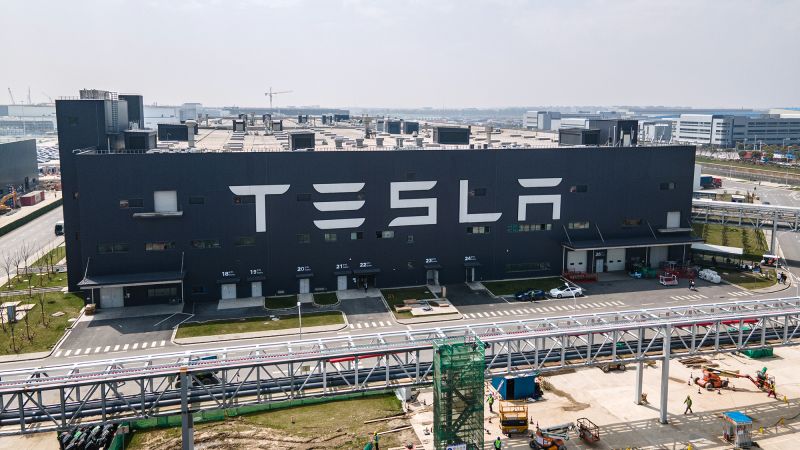Tesla has recently announced significant price cuts in China and Germany, following earlier reductions in the United States, in response to declining sales and increased competition in key markets. In China, the company slashed the starting prices of four models by 14,000 yuan, with the Model Y now available at its lowest price ever of 249,900 yuan. Similarly, in Germany, Tesla reduced the price of its Model 3 rear-wheel drive by 2,000 euros. These cuts come after price reductions in the US on three models, with Tesla’s stock falling by over 40% year-to-date following a decrease in quarterly deliveries and staff reductions.
The price reductions in China, Tesla’s largest overseas market, are expected to intensify a price war in the competitive electric vehicle sector. Chinese EV maker Li Auto responded by lowering the prices of all four of its models in response to Tesla’s cuts. This move highlights Tesla’s increasing competition in China, as it was briefly surpassed by BYD as the world’s top-selling EV brand last year. BYD offers more affordable vehicles, with its entry-level model priced at just under $10,000 compared to Tesla’s Model 3, which now costs over $32,000 in China after the recent price reduction.
The price war in China’s EV market began in 2022 when Tesla initially cut prices to stimulate sales in a slowing economy. This led to other major manufacturers following suit, impacting overall profit margins in the auto industry. The competition has continued into 2024, with over 30 car makers announcing additional price cuts to attract buyers. XPeng and BYD are among the companies offering subsidies and reducing prices on their EV models in response to Tesla’s pricing strategy.
In response to Tesla’s aggressive price cuts, other manufacturers in China are also adjusting their pricing strategies to remain competitive. BYD lowered the price of its Seagull hatchback by 5% in March, while Xiaomi entered the EV market by launching its SU7 sedan to challenge Tesla. The ongoing price war in China’s EV market is expected to benefit consumers through more affordable electric vehicles, but it poses challenges to manufacturers in terms of maintaining profitability in a competitive market.
Overall, Tesla’s price reductions in key markets like China and Germany reflect its efforts to boost sales and remain competitive in the global EV market. Despite facing challenges such as declining sales and increased competition, the company continues to innovate and adapt to the changing market landscape. As the EV sector continues to evolve, Tesla’s pricing strategies and product offerings will play a crucial role in its future success and growth in the industry.


